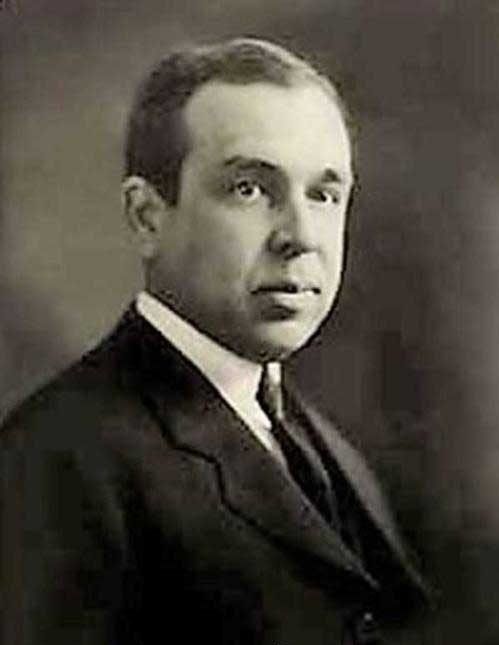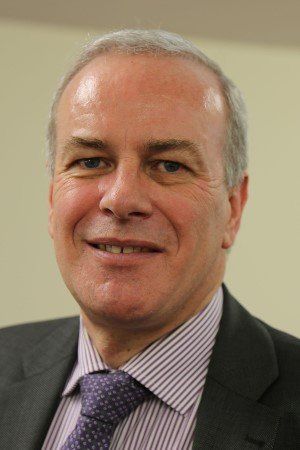1. When did you become a Christian?
It was at the age of ten in February 1970 that I consciously professed faith in Christ, but I have often wondered if that was simply the tip of the iceberg of something much greater. I had been born into a Christian home and had received a faithful biblical upbringing and I am sure God had actually worked in my heart before that age in keeping with his covenant promises to believers and their children. What was clear was that my understanding of the Christian faith began to crystallize at that point and thereafter I was conscious of a direction in life which was not there before.
2. Who has had the most influence over you?
There is, I believe, an ‘influence by osmosis’ that every child of Christian parents imbibes. That was certainly true for me. Growing up with the instruction, prayers and example in our home had an enormous moulding effect on me. After that it was as though God provided significant people at significant times to help me along the way. I went to boarding school when I was ten and was greatly helped in those years by a Christian from the senior school. At university I was befriended by Derek Thomas in Belfast, whose church I was to join. His friendship and influence continue to mean more to me than I can easily express. At seminary Sinclair Ferguson was a great help to me. He has proved to be a mentor in the best sense. The greatest abiding influence in my life, humanly speaking, is my dear wife Fiona — she keeps me in the real world!
3. In what ways are churches both stronger and weaker today?
I think it was Alec Motyer who said, referring to the Anglican Church, ‘Never in our history have there been so many evangelicals, yet never in our history has the evangelical cause been so weak.’ There is unquestionable greater numerical strength of evangelicals in today’s churches, but that has not been matched by qualitative strength. Large numbers of people professing the evangelical faith are not in themselves a bad thing, but where they go and what they will accomplish will depend on how they are taught and moulded.

4. What did you most gain from your theological studies?
I well remember my first week on campus at Westminster Seminary, Philadelphia, thinking that I had arrived at the home of Machen and Murray’s theology. Three years there and I would know all I would need to know for ministry. Three years later, standing in line for graduation, I was gripped by the thought, ‘I’ve only scratched the surface!’ Westminster gave me a framework for ongoing biblical studies — a set of pigeon-holes, if you like, into which I could file and filter all subsequent study. It was the historic Reformed perspective of seeing the Bible as a covenantal book from beginning to end which has had the most enduring influence on my thinking.
5. What historical figure do you admire most?
If it is not twisting the sense of ‘historical’ in the question, I would have to say John Mark of biblical fame. I say that because, in the fleeting glimpses we have of him, we see him as a saint who failed when he deserted his companions on Paul’s first missionary journey (in so doing, angering Paul immensely), but later we see him as a saint restored. Paul, in his final letter, was able to say, ‘Get Mark and bring him to me, for he is helpful to me in the ministry’ (2 Timothy 4:11). He is a living emblem of God’s mercy and grace to all of us who are failing saints.
6. What book do you appreciate most?
If appreciation is to be measured by impact and magnetism, then Sinclair Ferguson’s little volume The Christian life: a doctrinal introduction is one which stands out. When I first read it, my self-understanding as a child of God suddenly matured. It is hardly surprising that I have found myself drawn back to it over and over again. Even though it might not be regarded as a ‘weighty tome’ it has been the means of guiding me into the heavier sources from which its pages were quarried.

7. What is your favourite hymn?
The first day I went along to Tenth Presbyterian Church in Philadelphia to hear James Montgomery Boice preaching, he announced Luther’s hymn, ‘A mighty fortress is our God’. The girl next to me turned and whispered, ‘This is the greatest hymn in the hymn-book and it is being played by the second greatest organist in America.’ When it was over I wasn’t so sure I believed her on either count, but since then have found it being sung at significant junctures of my personal pilgrimage and has come to be very precious. Our corporate security is in God alone.
8. Have you a particular verse from the Scriptures which has been helpful?
‘How great is the love the Father has lavished upon us, that we should be called the children of God!’ (1 John 3:1). One of the most heart-warming, yet most neglected truths of the gospel is that of adoption, the fact that God not only justifies sinners, but makes them his children. It is well defined in the Westminster Shorter Catechism as that gracious act of God, ‘whereby we are received into the number of and have a right to all the privileges of the sons of God’. In our fragmented, lonely world it is an element of the ‘Good News’ which cannot be sounded too loudly.

9. How and when do you relax?
Monday is my day off and my fellow-elders have been brilliant in protecting it for me. Occasionally, I play golf to unwind and, when I’m able, I head off with my camera. My chief passion is game fishing, but since moving to London this has tended to become the stuff of dreams rather than true relaxation. I guess I’m something of a solitary creature by nature and just love to be out in the wilds with a rod and some water — the fish are almost incidental!
10. What has been a help to you in your personal devotions?
Two devotional aids stand out for me in my experience since the early days of my Christian life. One is Search the Scriptures. Many years of using this taught me a great deal about how to approach the text and ask the right kind of questions to begin to unlock its meaning. The other is M’Cheyne’s Calendar for Daily Readings. This has helped me to cultivate the discipline of reading through the whole Bible on a regular basis. I believe these two elements are crucial to a constructive devotional life.
11. What emphases need to be restored in evangelical churches?
I am convinced that our greatest need at this point in history is to recover a meaningful sense of our corporate identity as the people of God. In an age of evangelical fragmentation we need as never before to hear and heed Paul’s vigorous command to ‘Spare no effort to maintain the unity of the Spirit in the bond of peace’ (Ephesians 4:3); and to appreciate that Jesus said, ‘I will build my church [not “churches”] …’ (Matthew 16:18). Christians and churches alike have been plagued by the individualism of the twentieth century. We desperately need a restoration of the majestic vision of what it means to be part of the one Bride of Christ. None of us can go it alone.

12. What lessons have you learned?
That ‘The just shall live by faith’ (Habakkuk 2:4). Daily, prayerful dependence upon God in Christ for all things is the essence of fruitful and fulfilling Christian living. We need to be prepared to risk all by saying, ‘Thy will, not mine be done.’ It is the hardest of lessons, because it strikes at the very heart of our nature. But it is the most rewarding of paths. It leads to life abundant.
13. What are your regrets?
That I am so inconsistent in grasping the lesson of daily dependence on God. Its truth is not only self-evident from Scripture, it is ever proved in daily experience. Paul’s anguished confession to being a ‘wretched man’ (Romans 7:24) is one with which I can readily identify. It will be my abiding regret until God finally takes me home, because I know that every sin is an insult to my God and Saviour. So long as we are in the world, there is something of the world in us. How much we need the spiritual stamina to sustain the direction of our Christian lives which is always onwards and upwards!
14. What have been your greatest encouragements?
God has been good to me and to my family and in my ministry and I can think of many encouragements. One, however, predates them all and can be traced back to my earliest days as a Christian. In the second form at boarding school three of my friends became Christians and we began to meet for prayer and Bible study on Sunday evenings. In the space of less than two years that group of four became a group of almost fifty in a way which had the fingerprints of God all over it. Many of the group were truly converted and have gone on with God. I have longed for the same spiritual multiplication by conversion on that scale ever since.
15. What ambitions and hopes do you have for the future?
That God might keep me fresh and faithful to the end. It is easier to start well than to finish well in the ministry. Only he can establish the work of our hands (Psalm 90:17).







